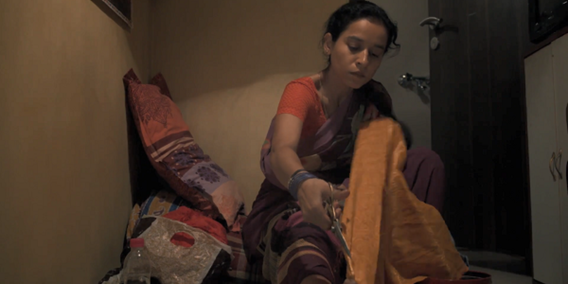In 2020 when the world descended into chaos with the loss of lives, jobs and freedom, we all desperately looked to the scientific community to come up with a cure as quickly as possible. We looked to them to answer our questions. And the community delivered, we now have the solution we were so desperately looking for last year. But is everyone accepting this solution?
Why aren’t they?
Alienation from the scientific community
While some of us believe in scientific rigour and trust the community, everyone may not have the same level of confidence. So when we witness errors in the process of the development of the vaccine and start to question things, our valid concerns may be dismissed quickly.
When the AstraZeneca trial was paused after the vaccine was already rolled out, we were quickly told that such instances were a part of the development process. While this can be reassuring to some, Lisa Rosenbaum, MD in her article about vaccine hesitancy explained Heidi Larson’s perspective on it
“ …this response lacked expressed empathy for the person(s) who experienced an unexpected reaction. “It’s not normal for the person who was hurt,” she said. In our rush to defend the vaccine and the evaluation process, the scientific community may fail to convey how the participant’s symptoms were addressed, ….After speaking on the radio about this oversight, Larson was contacted by a trial participant who’d experienced an adverse event and wanted Larson to know how well she’d been cared for by the trial’s clinicians. “The scientists were doing the right thing,” Larson told me, “but they weren’t communicating it.”
The non-communication brings us to the other reason why vaccine hesitancy stems from misinformation.
Messaging
While increasing in the amount of accurate information we’re putting out there is important, it may not be enough. Anti-vax or even cure-all messages are emotionally charged. They evoke anger and mistrust.


Misinformative narratives present an Us vs Them worldview.
This especially works when the population they’re trying to convince is already distrustful of government authorities (due to disputes or oppression). There was widespread misinformation in rural Chhattisgarh, which stemmed from distrust of the government. This resulted in the shunning of government staff that reached these areas to roll out vaccines.
A combination of these factors can either push people to an extremely anti-vaccine approach or make them hesitant.
So why am I elaborating on the other side of this issue when we’re trying to convince people to get the vaccine? Because the only emotion that can counter the anger, fear and mistrust is empathy! And to be empathetic, we’ve first got to understand the person we’re trying to convince – see where they’re coming from. You’re not being unscientific or giving up your own views when you do this.
How can you have this conversation?
Here are a few ways you can talk to someone who is vaccine hesitant with understanding, kindness and respect based on advice by Behavioural health therapist Kathy Barringer, LPCC.
We’re all scared. Ask them what they’re scared of.
Knowing what exactly their fear is can help you understand what kind of information you can give them to understand the facts instead of throwing random facts and statistics at them.
You may be tempted to roll your eyes and dismiss them when the source they choose to believe is not a verified or professional one – resist the urge. Our experiences shape our beliefs and we’ve all had different experiences so it’s natural for our beliefs to defer. Making them feel judged about their choices is only going to create distance and disrupt meaningful communication.
Meet them in the middle.
Most people you know may not be anti-vaccines but just hesitant. They might be hesitant because of all the changes that have been made so far in the information we’ve had about the virus.They might need more time, information or assurance.
“Experts say to focus your time and attention on those people in the middle of the spectrum. Those with a fixed mindset about the vaccine aren’t likely to be swayed – no matter how logical, factual or respectful you are. But people in the middle group tend to fall in the “wait and see” category or simply need more information from a trusted source or individual.”
Be clear about your intentions for having these conversations.
Be honest in asking yourself why you’re engaging in this conversation. The main reason of course might be to increase safety through increased vaccination.
Dig deeper, are you looking at this person with anger because “they are the reason this lockdown won’t end!” Are you thinking to yourself “how difficult is it to accept something that has been so well researched?” and feeling like you’re at your wit’s end. It’s important to be aware of these feelings.
When you’re having a conversation with someone who is hesitant, it’s not an argument or debate that needs to be won. Treating this topic as a debate is exactly what’s turned it into a political issue in the first place. So avoid taking this approach. Knowing your own intentions and emotions will help you cope if you aren’t able to convince someone.
We’re living in a world where everyone is pushed towards advocacy and activism – which is a good thing- but when you feel compelled to do this on a personal level with people you know, take breaks. Understand that there is only so much you can do. If it feels overwhelming, take a step back.
Sometimes all you can do is wear your own mask, take your vaccine, make sure you’re being safe and take care of yourself. Some days it’s okay to be responsible for just YOU because that is enough!


 Sanjana has recently graduated with a degree in Psychology and is interning at The Thought Company to gain more knowledge and experience on her path to becoming a mental health professional. She is interested in understanding what makes people resilient in the face of adversity. She has a knack for cooking, origami and re-reading Khaled Hosseini books. Her favourite way to de-stress is watching a Pixar movie curled up next to her dogs. If she could be any Pixar character, she’d be Remy from Ratatouille!
Sanjana has recently graduated with a degree in Psychology and is interning at The Thought Company to gain more knowledge and experience on her path to becoming a mental health professional. She is interested in understanding what makes people resilient in the face of adversity. She has a knack for cooking, origami and re-reading Khaled Hosseini books. Her favourite way to de-stress is watching a Pixar movie curled up next to her dogs. If she could be any Pixar character, she’d be Remy from Ratatouille!




